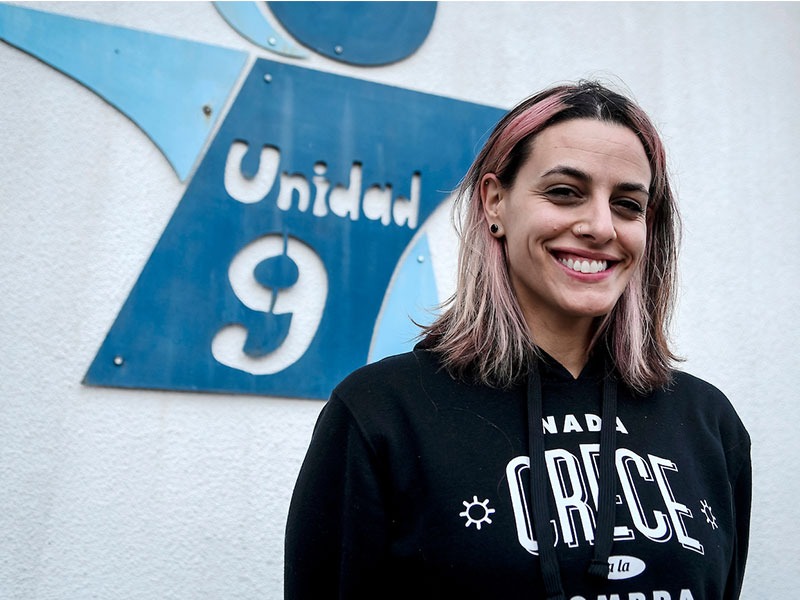Nada Crece A La Sombra, or Nothing Grows In The Shadows, is a social-educational program designed to lower prison violence and provide values and tools to help prisoners reintegrate into society in Uruguay.
According to a 2022 Uruguayan government report, 15,000 of the country’s 3.2 million population were in the jail system. It was also reported that the biggest crime committed in the country was theft, followed by domestic violence cases, and the country has over 300 homicides per year due in part to growing drug gangs.
The prisons themselves in Uruguay are not what one would consider places where inmates go for rehabilitation. In fact, all of the prisons in Uruguay lack basic necessities.
A 2022 United States State Department report claimed that conditions in Uruguayan prisons were “poor and inhuman in several facilities due to overcrowding, poor sanitary conditions, inadequate medical care, inadequate socioeducational programming, and high levels of violence among inmates.”
On average, the prisons of Uruguay are running at 126% of their maximum capacity. It is under these harsh and cruel conditions in which Nada Crece a la Sombra (Nothing Grows in the Shadows) works.

Denisse Legrand, the coordinator of the program, and her staff seek to promote desistance processes — distancing from the world of crime — through the promotion and implementation of socioeducational actions in prisons. The overall goal is to contribute to generating changes in behavior, identity processes, and social reintegration, in addition to reducing recidivism.
Nada Crece a La Sombra has programs which involve the use of music, gardening, football, and radio as tools to stimulate reflection, process emotions, transform forms of expression, and break the cycle of violence, promoting healthy relationships, peer coexistence, and environmental well-being in detention centers.
Football, especially in Uruguay, a country where eight out of 10 children play the sport starting at an early age and six out of 10 boys play the game in an organized fashion, is a major cultural component of society.
It is also a big tool in trying to teach inmates certain values that can help them both during their prison stay and when they return to society.
The Value of Sport
“We understand soccer as a game, not so much a competitive sport,” Legrand said. “Soccer is popular, it’s a universal tool. The sport allows for communication at various levels, it generates a lot of positives when it comes to groups and teamwork. It is also a great tool to connect with various inmates of different age groups, especially younger ones.
“Uruguay is a country that communicates a lot through soccer, and a big part of its identity is through soccer.”
While Nada Crece A La Sombra has contracts with the Uruguayan government to operate and conduct their work in the prison system, finding comprehensive reports on outcomes of these types of projects is scarce.
The organization at times is left to evaluate what is most effective themselves, and while there are many complexities to each individual person who goes to prison, some things have become apparent according to Legrand.
“When a person partakes in a group effort, you feel less alone and have more of a chance to grow,” she said. “It’s fundamental in these processes that, in a way, you break routine. Our main goal has always been to break with routines that can be very violent, where groups usually get together for illegal activities, and soccer breaks with those routines.
“Soccer through its rules and processes helps to maintain a collective goal, that by following certain rules your team and yourself can achieve a goal. It’s important to note that just playing soccer isn’t enough to rehabilitate an inmate. It’s important to not sell a fantasy, but through soccer, an inmate can improve certain social abilities and begin the process of laying the groundwork to move that person away from crime.”
The program has had the collaboration of various former Uruguayan national team players, including Sebastián “Papelito” Fernández, who played in the 2010 FIFA World Cup, and Emiliano Albin, who played in the 2012 Summer Olympic Games.
Hope for the Future
Nada Crece A La Sombra has been working with male and female inmates of all ages for more than 10 years. Through ups and downs, budget cuts and project terminations, Legrand and her staff have been working hard to try and change a status quo, that prisons can be a place where a prisoner serves their sentence but also gains certain tools and values necessary to try and avoid a criminal life when they get out.
Uruguay, like much of the Americas, uses prisons more as a depository of criminals rather than an actual place for rehabilitation.
“[Prisons are] used as a place to punish criminal conflicts not so much social conflicts,” Legrand said. “The idea is that social conflicts can be brought to the forefront with other tools and ideas that don’t necessarily end up with a person in jail.”
While there is no easy answer to the prison system, one thing has come to light over the last 20 years: things cannot stay as they are. Programs like Nada Crece A La Sombra and playing the sport of football provide an outlet for certain inmates to try and regain a little bit of humanity in a harsh and difficult point in their lives.








